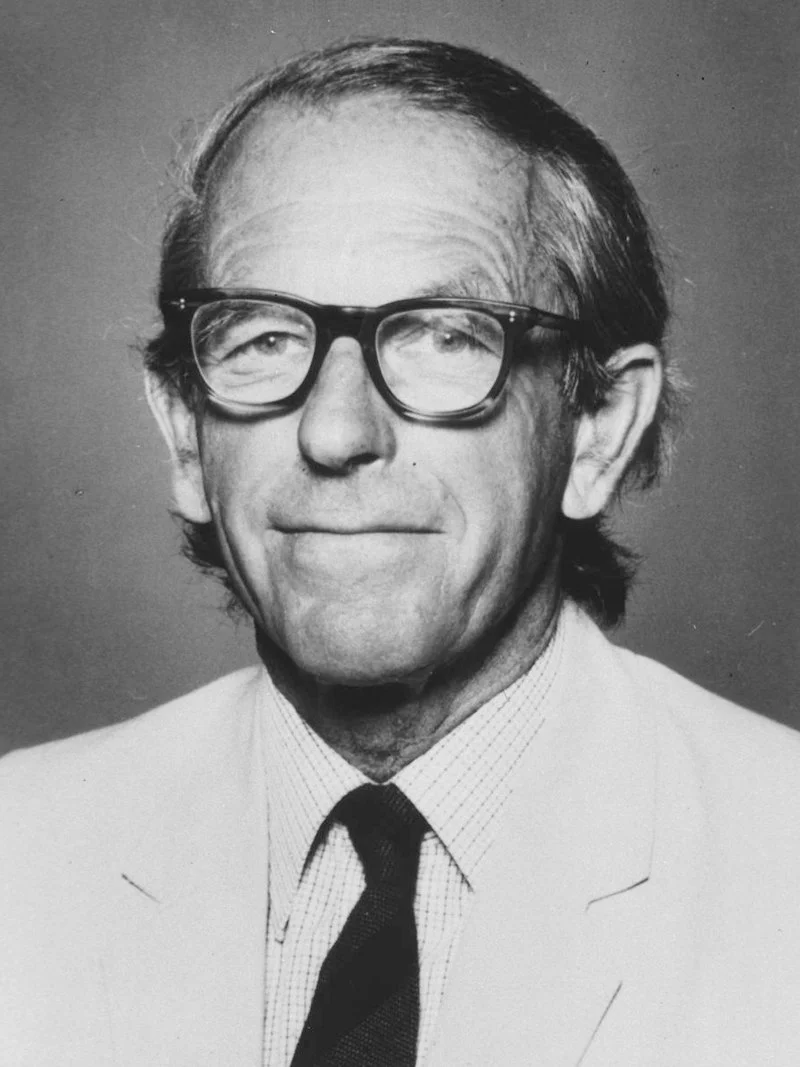Short Summary
Frederick Sanger was an influential British biochemist renowned for his groundbreaking work in the field of molecular biology. He is most famous for developing methods to sequence proteins and nucleic acids, which have been crucial in advancing genetic research. Sanger is one of the few individuals to have received the Nobel Prize in Chemistry twice, solidifying his status as a pioneer in the scientific community.
Early Life & Education
Frederick Sanger was born on August 13, 1918, in Rendcomb, Gloucestershire, England, into a Quaker family. His father, Frederick Sanger, was a medical practitioner, which played a significant role in shaping his interest in science. He attended Bryanston School and later pursued his undergraduate studies at St. John's College, Cambridge, where he initially studied natural sciences. Influenced by his professors and the rich academic environment, he developed a keen interest in biochemistry, setting the stage for his future scientific endeavors.
Career Highlights
Frederick Sanger's career took off when he joined the Medical Research Council's Laboratory of Molecular Biology in Cambridge. Here, he developed the Sanger method for sequencing proteins, which led to the determination of the structure of insulin. His career further flourished with the invention of the Sanger sequencing method for DNA, which revolutionized genetic research. Throughout his career, he held various prestigious positions, contributing significantly to the understanding of molecular biology.
Major Achievements
- First Nobel Prize in Chemistry in 1958 for determining the structure of insulin.
- Second Nobel Prize in Chemistry in 1980 for developing DNA sequencing techniques.
- Developed the Sanger method, a pioneering technique for sequencing proteins.
- Contributed to the sequencing of the first entire genome of a bacteriophage.
- Authored numerous influential scientific papers, advancing the field of genetics.
Famous Quotes
- "I was just a chap who messed about in his lab."
- "It is like a voyage of discovery into unknown lands, seeking not for new territory but for new knowledge."
Interesting Facts
- Sanger is one of only four individuals to have received two Nobel Prizes.
- He was known for his modesty, often downplaying his significant contributions.
- His work laid the foundation for the Human Genome Project.
- He preferred a low-profile lifestyle, focusing on research rather than public appearances.
- Sanger retired in 1983 to focus on his personal interests, such as gardening.
Legacy / Influence
Frederick Sanger's legacy is profound, as his sequencing techniques have become standard tools in molecular biology and genetics. His work paved the way for modern genetic research and biotechnology, influencing the development of personalized medicine and genomics. Sanger's contributions have left an indelible mark on science, inspiring countless researchers and significantly advancing our understanding of life at the molecular level.
FAQ
Q: Why is Frederick Sanger famous?
A: He is famous for developing methods to sequence proteins and nucleic acids, winning the Nobel Prize in Chemistry twice.
Q: What are Sanger's major contributions to science?
A: His major contributions include the Sanger method for protein sequencing and DNA sequencing techniques.
Q: How many Nobel Prizes did Sanger win?
A: Frederick Sanger won two Nobel Prizes in Chemistry.











